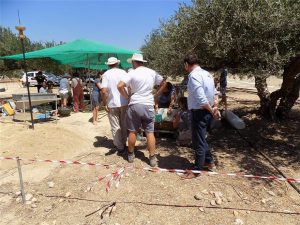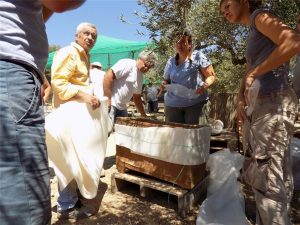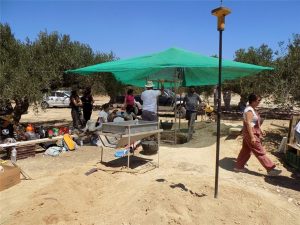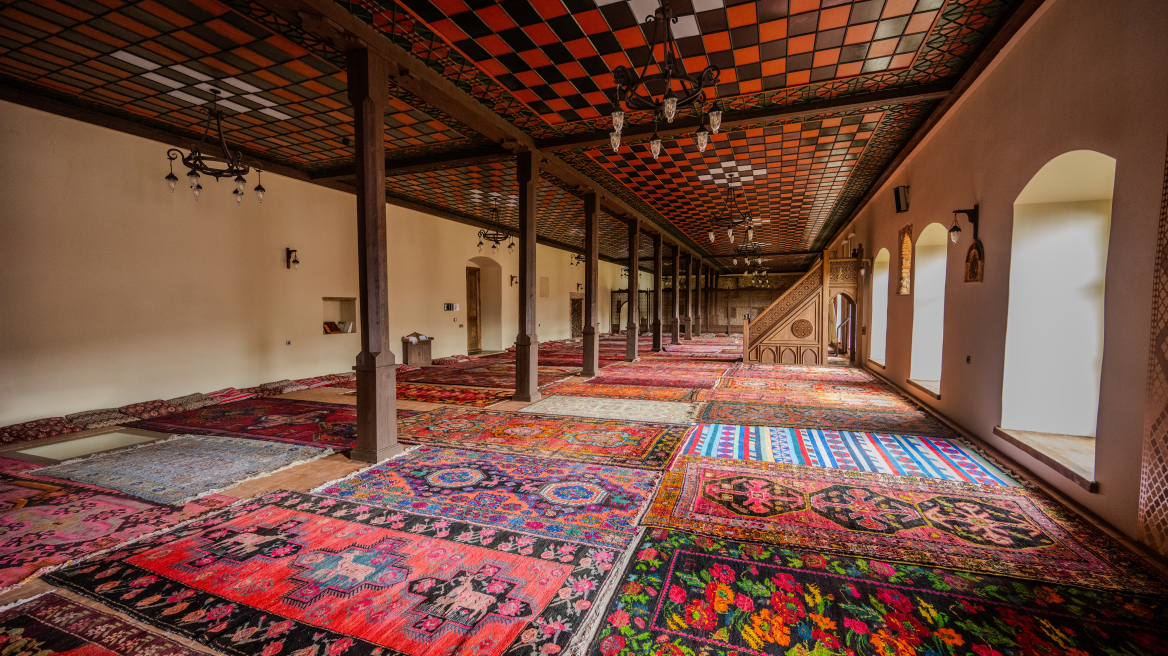Two clay burial containers called Larnakes, estimated from the Late Minoan era were accidentally discovered at Kentri in Ierapetra in South Crete.
The coffins, estimated to be from the post-Minoan era were discovered when a farmer tried to park his vehicle in an olive grove and the land underneath collapsed.
According to sources, the clay coffins are decorated with embossed ornamentation and are in excellent condition. They contain two skeletons and about 24 vases with coloured reliefs and depictions.
Larnakes (singular Larnax) are small closed coffin, box or “ash-chest” often used as a container for human remains in Minoan culture and Greek antiquity, either a body (bent on itself) or cremated ashes.
The first larnakes appeared in Minoan times during the Aegean Bronze Age, when they took the form of ceramic coffers designed to imitate wooden chests, perhaps on the pattern of Egyptian linen chests. They were richly decorated with abstract patterns, octopuses, and scenes of hunting and cult rituals.
“The positive thing is that they were not emptied by thieves and this will help archaeologists get as much information as possible. This is a great day for Ierapetra. When you see that in a 4-metre hole there are such important antiquities you feel awe,” Argyris Pantazis, deputy mayor of Local Communities, Agrarian and Tourism of Ierapetra, told cretapost.
The archaeological find came to light when a local farmer tried to park his vehicle under an olive tree.
The soil was soft because of watering the olive trees and because a water pipe was broken, Pantazis explained.
“We are particularly pleased with this great archaeological discovery as it is expected to further enhance our culture and history. Indeed, this is also a response to all those who doubt that there were Minoans in Ierapetra ” Pantazis stressed.



Ask me anything
Explore related questions





